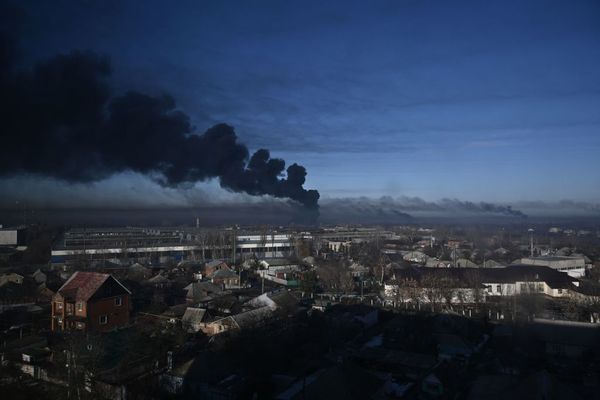
“You’re a Jew,” the Israeli border guard told me at the Erez checkpoint, the border crossing between Israel and Gaza. “Why do you want to go into Gaza? It’s full of terrorists.”
I’ve been visiting Gaza as a journalist since 2009 and every time I entered I faced a similar bewildering stare from a bored, young Israeli officer. They couldn’t fathom why a Jewish reporter would want to enter the besieged territory. I was quizzed about my Judaism and why I didn’t speak Hebrew. They wanted to know when I would be moving permanently to Israel.
This wilful blindness, so common within Israel and the global Jewish diaspora, is what leads to dehumanising an entire population. There are 2.3 million Palestinians in Gaza and the richness of their lives, the struggles, hardships and successes, are too often obscured or ignored in the international media.
It’s far easier to view them all as supporters of Hamas, the thuggish Islamists who’ve nominally controlled the tiny territory since 2007 (though Israel has always managed the land, sea and air borders, leaving Israel with ultimate command over Palestinian freedom of movement).
Six months after Operation Cast Lead, the Israeli war on Gaza in late 2008 and early 2009 that killed 1,400 Palestinians including 300 children, I was in Gaza to find entire neighbourhoods levelled, people still living in the rubble of their homes.
Across Gaza, bombed-out buildings dotted the streets. Islamic graffiti covered the walls. The Hamas flag flapped from power lines. Photos of Palestinian martyrs were posted on billboards. Many residents are refugees, though they welcomed me into their homes. One poor family in Beit Lahiya, in the northern Gaza Strip, had tried to bring normality for their children by having a vegetable patch and plastic swimming pool.
Jamil Al Asmar, a professor of English at the Islamic university, told me that the Israelis struck the facility during the conflict. “Anybody who bombs institutions are not human,” he said. “Tell the world that we are human, just like they [the Israelis] are human.”
I’ve been thinking a lot about Gaza since the devastating Hamas attack on Israel — a deadly, illegal and immoral attack that deliberately targeted civilians. The brutality of slaughtering and kidnapping civilians was an abomination and will not serve the Palestinian cause.
The status quo in the occupied Palestinian territories has benefited Israel well for years, as the agenda has been to build an apartheid state across both Israel and Palestine (an assessment made by every Israeli and Palestinian human rights group, Amnesty International and Human Rights Watch).
However, for Palestinians in the West Bank, Gaza and East Jerusalem, it’s been a constant barrage of ever-expanding illegal settlements, Jewish-led pogroms and racialised discrimination.
As a Jew, I’ve long been disgusted with the proudly Jewish supremacist program on display in the Jewish state, backed by too many in the mainstream Jewish community in Australia and beyond.
When I lived in East Jerusalem between 2016 and 2020 with my partner who worked for an international NGO, every day I saw the humiliation meted out by Israeli police to random Palestinians. I witnessed extremist Jewish settlers in Hebron openly calling for genocide against Arabs. The daily mechanics of the occupation involve a myriad of ways that Palestinians are treated like second-class citizens.
In the past week, the unrelenting Israeli response arrived with predictably brute force. A friend in Gaza, Haneen, told me that Israel’s indiscriminate bombardment of civilian homes and infrastructure had lasted for days but “felt like three years”. War crimes are being committed on a daily basis and yet the Western powers are endorsing it.
Israel’s much-vaunted surveillance and intelligence apparatus was found gravely wanting despite claiming to have every inch of Gaza under constant watch. For the past decades, Israel has deployed an extensive array of drones, Palestinian spies (many times they’re blackmailed by Israel to pass along intelligence), so-called “smart walls” and sophisticated listening devices. And yet Hamas was still able to mount a deadly attack.
As I reveal in my recent book, The Palestine Laboratory, Israel has used the Palestinian territories as a testing ground for a suite of repressive tech including facial recognition and biometric tools, spyware and drones. Once “battle-tested” on Palestinians, they’re sold to countless nations across the globe, from democracies to dictatorships, including Saudi Arabia, India, Bangladesh, Spain, Greece, Australia and Mexico.
Despite the grave intelligence failure, I’m confident that Israel’s arms industry will continue to thrive because so many nations want a piece of Israel’s vast experience in targeting so-called unwanted populations.
Since Russia’s invasion of Ukraine in February 2022, Israeli defence companies have been swamped with interest from European nations that want to purchase missile defence shields and other armaments. The fact that Israel has developed and trialled these weapons on Palestinians isn’t viewed as an impediment but a major advantage.
After Israel pummels Gaza, with complete Western backing, millions of Palestinians will still be situated across Palestine, all deserving a safe and viable future. As the great Israeli journalist Gideon Levy wrote last week, a sane voice amongst the ubiquitous calls for revenge, Israel only knows the military “solution”.
“The threats of ‘flattening Gaza’ prove only one thing”, Levy explained. “We haven’t learned a thing. The arrogance is here to stay, even though Israel is paying a high price once again.”
The reckoning for decades of Israeli occupation is upon us. We either support indefinite colonisation and threats of ethnic cleansing or find a solution where all peoples can live together peacefully.







